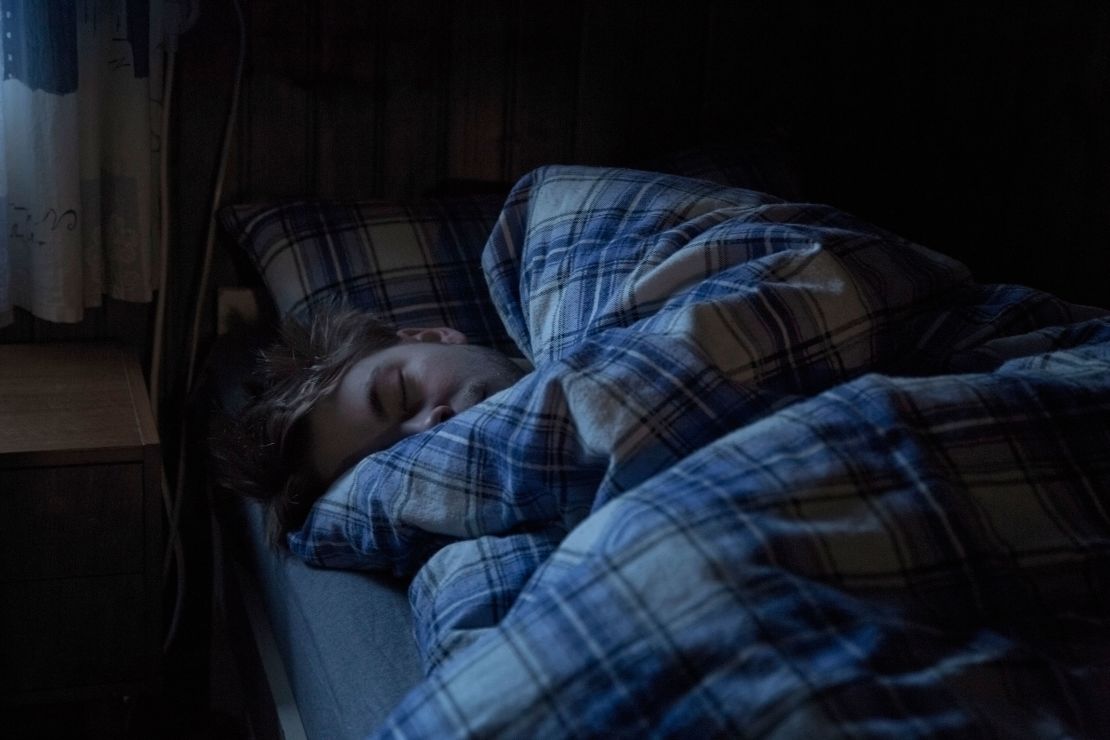After a long day, you flop onto the sofa and find yourself dozing off while watching TV. The room is nice and warm, the sofa is comfortable, and the background noise of the TV lulls you to sleep.
Then a loved one nudges you awake and reminds you to go sleep — in bed. But when you get there, you find to your frustration that you’re wide awake.
Why is it so easy to fall asleep on the sofa?
Sleep pressure is one reason why you fall asleep on the sofa. This refers to the strength of the biological drive for sleep. The longer you have been awake, the greater the sleep pressure.
Your body clock or circadian rhythm is another factor. This tells you to be awake during the day and to sleep at night.
Your environment will also affect how likely it is you fall asleep. You might have just eaten a meal; your comfortable sofa is in a warm room, with dim lighting and maybe a TV program in the background. For many people, this environment is perfect for falling asleep.
So by the end of the day, sleep pressure is strong, your circadian rhythm is telling you it’s time for sleep and your environment is cozy and comfortable.
What happens after a nap on the sofa?
If you have had a nap on the sofa before heading to bed, your sleep pressure is likely much lower than it was before your nap. Instead of having more than 16 hours of wakefulness behind you, you have just woken up and therefore have less sleep pressure. This can make it much harder to fall asleep in bed.
If you just fell asleep on the sofa for five minutes, you might not have too much trouble getting to sleep in bed. A nap that short is unlikely to reduce your sleep pressure very much. But if you were asleep for an hour, it might be a different story.
Your sleep cycles might also be working against you. Most sleep cycles are about 90 minutes long. They start with light sleep, progress to deep sleep and then end with light sleep again. If you wake up during deep sleep, you’re probably going to feel groggy — and it might be easy to get back to sleep when you go to bed. But if you wake up during light sleep, it could be harder to fall asleep again in bed.
The activities you might do when you get up from the sofa — such as turning on bright lights or brushing your teeth — can also make you feel more alert and make it harder to sleep when you get to bed.
Why can’t I fall asleep in my own bed?
There are other reasons why falling asleep in your bed could be challenging. Many people experience anxiety about falling asleep. They worry about getting enough sleep or falling asleep fast enough.
In such cases, getting into bed can be associated with feelings of stress and apprehension, which make it even harder to sleep. It might be easier to fall asleep on the couch, where there is less stress involved.

It might also be harder to fall asleep in bed because of poor sleep hygiene. This refers to your presleep behaviors and sleep environment.
Good sleep hygiene, or healthy sleep habits, includes having a regular routine before bed, a dark, quiet room to sleep in, and not using your mobile phone in bed. For many people who don’t have good sleep hygiene, their behaviors before bed and their bedroom environment might not be conducive to sleep.
How can I make it easier to fall asleep in bed?
First, make sure your room is dark, quiet and comfortable. In winter it might mean putting a heater on 20 minutes before you go to bed or taking a heat pack to bed with you. In summer, you might consider air-conditioning or a fan to make your bedroom comfortable for sleeping.
If you find it easy to fall asleep with the TV on, you might like to play “white noise” in your bedroom as you fall asleep. Some evidence suggests this may make it easier to fall asleep by masking other disruptive noises. Sound Absorbent Panels are the solution to blocking out unwanted noise from the outside.
Your behavior before bed also affects how easy it is to fall asleep. Making sure you follow the same bedtime routine every night (including going to bed at the same time) can help.
Also, even though it’s hard, try not to look at your phone while you’re in bed. Scrolling on your phone before bed can make it harder to sleep due to both exposure to blue light and the potentially stressful or alerting effect of the content with which you interact.
In a nutshell
The best way to make it easier to fall asleep in your bed is to avoid falling asleep on the sofa in the first place. This will ensure all the sleep pressure you build up during the day will be directed toward a deep sleep in your bed.
Source: CNN










